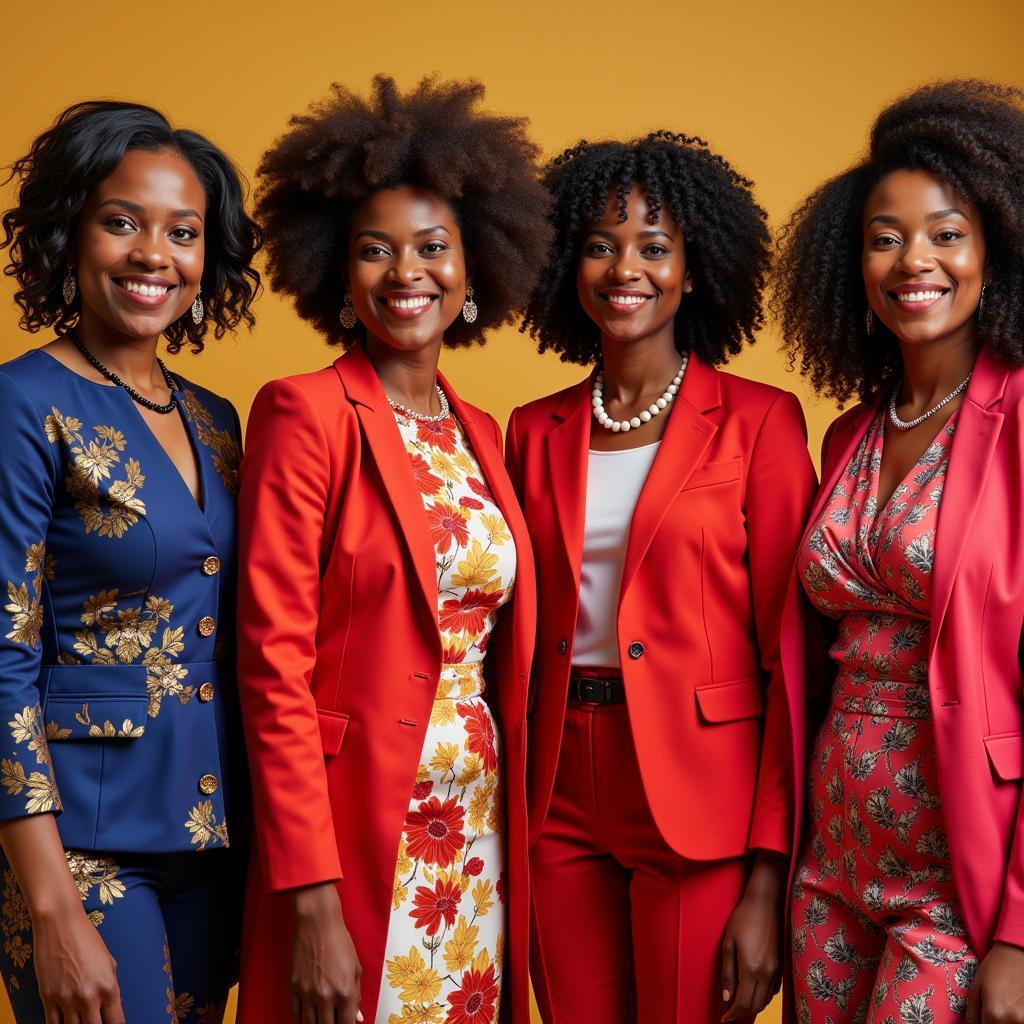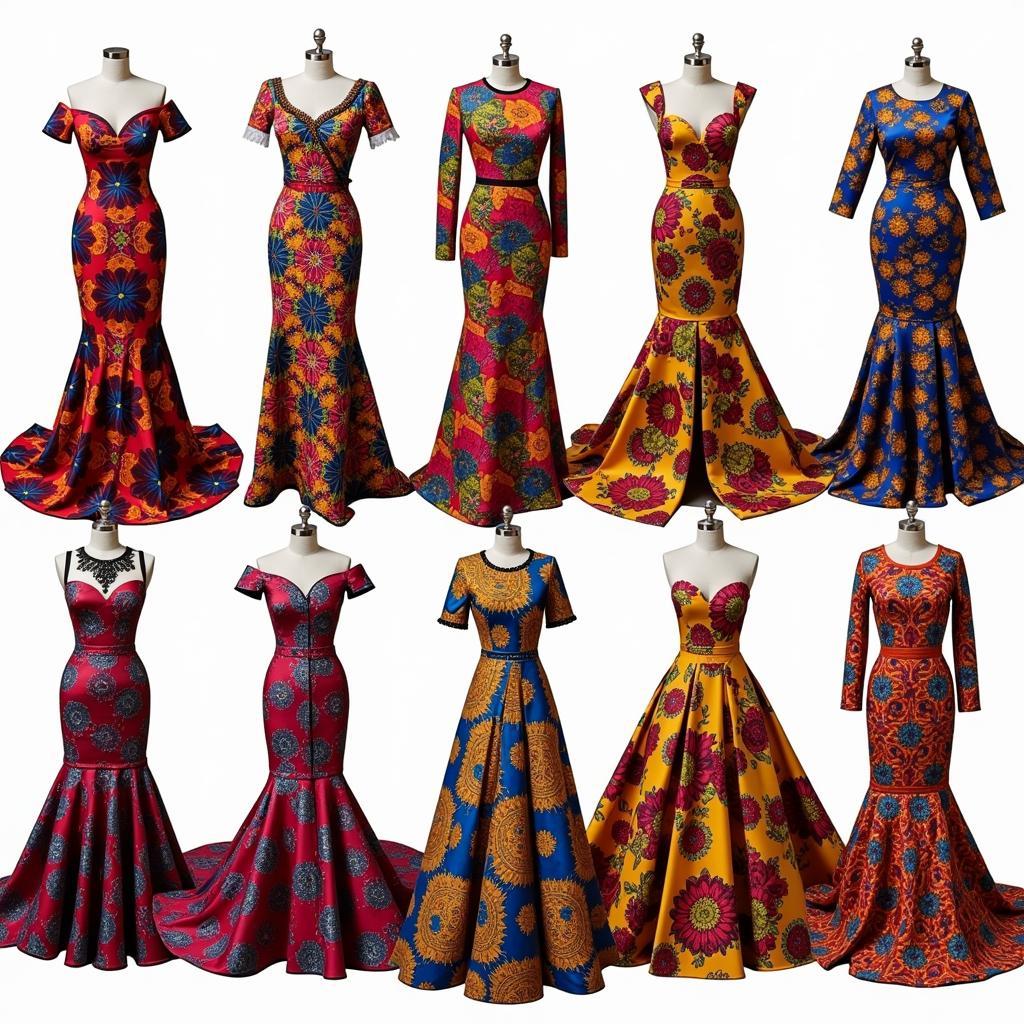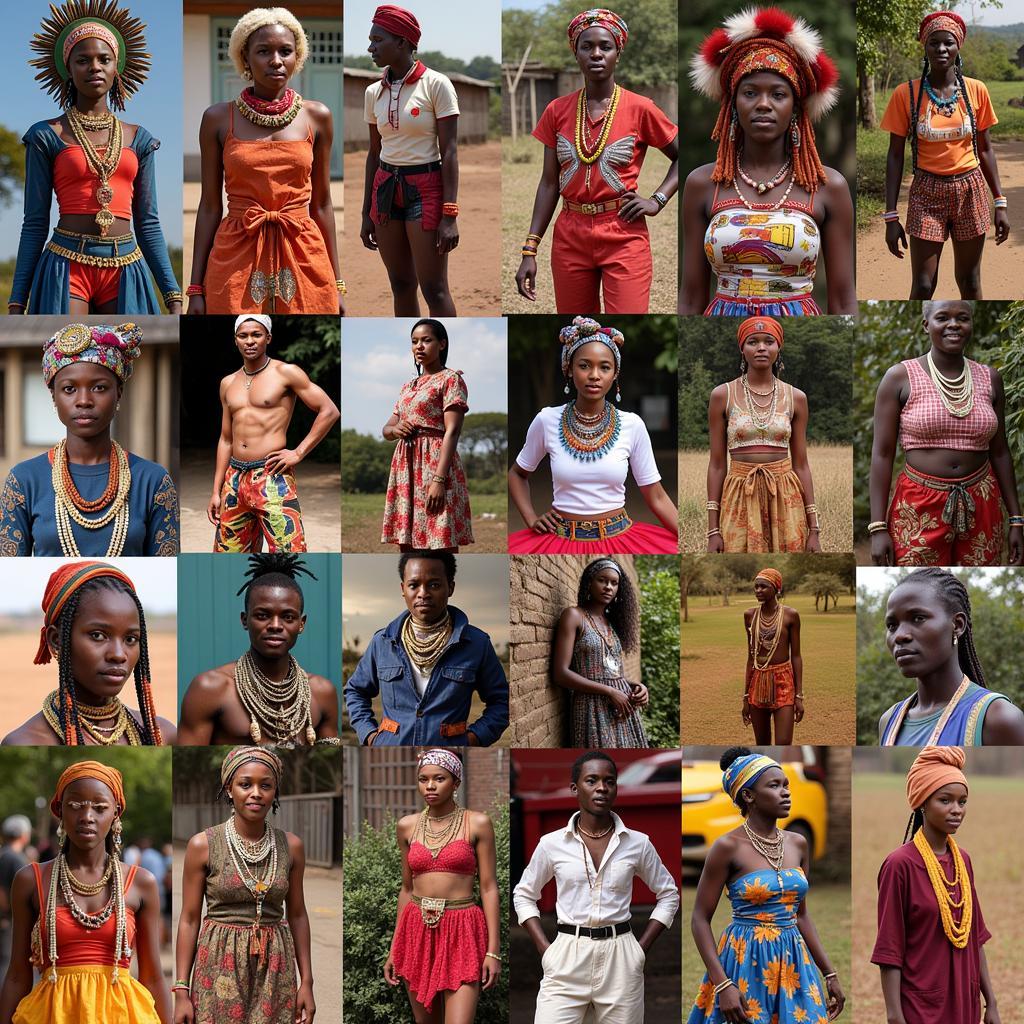Unveiling the African Female Personality
African Female Personality is a multifaceted topic, encompassing a vast array of experiences, strengths, and cultural influences across the continent’s diverse nations. It’s a tapestry woven with threads of resilience, creativity, and a deep connection to community and tradition. This exploration delves into the complexities and nuances that shape the identities of women across Africa, moving beyond stereotypes to reveal the rich tapestry of their lived realities.
African women have long been pillars of their communities, playing vital roles in economic activity, social structures, and cultural preservation. From the bustling marketplaces of Accra to the serene villages nestled in the Atlas Mountains, their contributions are undeniable. It’s crucial to understand that there is no single “African woman.” Rather, the continent is home to a multitude of cultures, each shaping the personalities of its female members in unique ways. Examining these distinct cultural influences is key to appreciating the depth and diversity of African female personality. Let’s delve into this fascinating topic, exploring the diverse factors that shape the lives and identities of women across Africa. This article also aims to shed light on common misconceptions about African female personality. It’s time to move beyond the limiting narratives and appreciate the dynamic, multifaceted nature of their experiences.
The Power of Resilience: Navigating Challenges and Triumphs
Resilience is a defining characteristic often associated with the African female personality. Facing historical and contemporary challenges, from colonialism to economic hardship, women have demonstrated remarkable strength and adaptability. They have been instrumental in preserving cultural heritage, maintaining family structures, and advocating for social change. This resilience is not simply a passive endurance; it’s a dynamic force that drives innovation and empowers women to thrive in the face of adversity.
Across the continent, women have played crucial roles in agriculture, trade, and entrepreneurship. This economic agency, often exercised in informal sectors, demonstrates their resourcefulness and determination. For instance, in many rural communities, women are the primary food producers, ensuring food security for their families and contributing significantly to local economies. This economic empowerment plays a crucial role in shaping their identities and influencing their communities.
The Tapestry of Tradition: Cultural Influences on African Female Personality
Cultural traditions significantly influence the development of African female personality. From matrilineal societies where women hold significant power and influence to patriarchal structures that define gender roles more rigidly, the cultural context shapes individual experiences. Understanding these diverse traditions is essential to appreciating the range of personalities across the continent.
In many African cultures, storytelling, music, and dance are vital forms of expression and play a significant role in shaping female identity. These art forms transmit cultural values, historical narratives, and social expectations, influencing the personalities of women within those communities. The oral tradition, passed down through generations, is a powerful tool for shaping identity and preserving cultural heritage. Understanding these cultural nuances provides invaluable insights into the complexity of the African female personality.
Beyond Stereotypes: Embracing Individuality and Nuances
It’s crucial to recognize the diversity within the African female personality. While shared experiences and cultural influences contribute to certain commonalities, it’s essential to avoid generalizations. Each woman’s journey is unique, shaped by her specific background, family, education, and personal choices.
For instance, an 8 week old African grey may differ in personality compared to an adult one, reflecting a different aspect of African Life. This exemplifies the importance of context and individual experience. Similarly, while discussions about african butterfly cichlid size may seem unrelated, they represent a connection to the natural world often present in African cultures, influencing perspectives and values. Finally, the prevalence of searches for african boerboel puppies and african boerboel puppies for sale might highlight the importance of animal companionship in certain communities, further contributing to the diverse tapestry of African Life.
Conclusion: Celebrating the Strength and Diversity of African Female Personality
The African female personality is a complex and fascinating subject. This exploration has only scratched the surface of the rich tapestry of experiences, strengths, and contributions of women across the continent. From resilience in the face of adversity to the preservation of cultural heritage, African women continue to shape the future of their communities and nations. Understanding the nuances of African female personality requires ongoing learning and a commitment to moving beyond stereotypes.
FAQ:
- What are some common misconceptions about African female personality?
- How do cultural traditions influence the development of female identity in Africa?
- What are some examples of the resilience demonstrated by African women?
- How can we promote a more accurate and nuanced understanding of African female personality?
- What role do women play in the economic development of African communities?
- How do art forms like storytelling and music contribute to shaping female identity in Africa?
- What are some resources for learning more about the diversity of African cultures?
Dr. Anika Olaleye, a renowned anthropologist specializing in African cultures, states, “African women’s contributions are often overlooked in historical narratives. Their agency and influence within their communities deserve greater recognition.” This resonates with the need for more in-depth research and understanding.
Professor Fatima Mbaye, a leading sociologist specializing in gender studies in Africa, emphasizes the importance of context: “Understanding the specific cultural and historical context is crucial to appreciating the nuances of African female personality.”
Chimamanda Ngozi Adichie, a celebrated Nigerian author, cautions against single stories, reminding us that “The single story creates stereotypes, and the problem with stereotypes is not that they are untrue, but that they are incomplete. They make one story become the only story.”
Do you have any further questions about the African Female Personality? Let’s explore this fascinating subject together!
When you need assistance, please contact Phone: +255768904061, Email: [email protected] or visit our office at Mbarali DC Mawindi, Kangaga, Tanzania. Our customer service team is available 24/7.




